Appreciation
Appreciation is the recognition and enjoyment of the good qualities of someone or something. It involves understanding the value, importance, or quality of a person, object, or event. In the context of science, appreciation can also refer to the recognition and understanding of the natural world, including the environment and living organisms.
What to Appreciate in Science
In the field of science, there are many things to appreciate and study. Some key areas include:
- Nature and the Environment: Understanding and appreciating the natural world, including ecosystems, biodiversity, and the impact of human activities on the environment.
- Living Organisms: Appreciating the diversity and complexity of living organisms, including plants, animals, and microorganisms, and understanding their role in the ecosystem.
- Scientific Discoveries: Recognizing and appreciating the work of scientists and the impact of scientific discoveries on our lives and society.
- Scientific Method: Understanding and appreciating the process of scientific inquiry, including making observations, asking questions, forming hypotheses, conducting experiments, and drawing conclusions.
Study Guide for Appreciation in Science
When studying and appreciating science, consider the following:
- Observation: Take time to observe and explore the natural world around you. Look for patterns, relationships, and interactions among living organisms and the environment.
- Curiosity: Develop a sense of curiosity and ask questions about the natural world. What makes a certain plant species unique? How do animals adapt to their environment?
- Connection: Understand the interconnectedness of living organisms and their environment. Appreciate the delicate balance of ecosystems and the impact of human activities.
- Gratitude: Show gratitude for the natural resources and the beauty of the environment. Recognize the importance of conservation and sustainable practices.
- Learning from Discoveries: Study and appreciate the work of scientists and the impact of their discoveries on society. Understand the process of scientific inquiry and the value of evidence-based knowledge.
By developing an appreciation for science, we can gain a deeper understanding of the natural world and cultivate a sense of responsibility towards preserving and protecting our environment and living organisms.
.◂Science Worksheets and Study Guides Fourth Grade. Animal Growth and Reproduction
Study Guide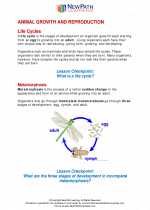 Animal Growth and Reproduction
Animal Growth and Reproduction  Activity Lesson
Activity Lesson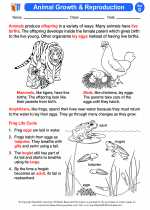 Animal Growth & Reproduction
Animal Growth & Reproduction  Worksheet/Answer key
Worksheet/Answer key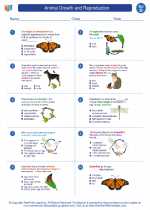 Animal Growth and Reproduction
Animal Growth and Reproduction  Worksheet/Answer key
Worksheet/Answer key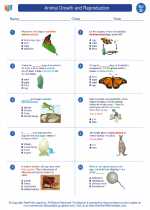 Animal Growth and Reproduction
Animal Growth and Reproduction  Worksheet/Answer key
Worksheet/Answer key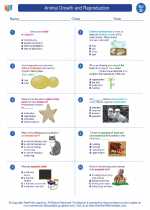 Animal Growth and Reproduction
Animal Growth and Reproduction  Worksheet/Answer key
Worksheet/Answer key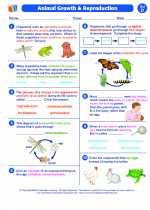 Animal Growth and Reproduction
Animal Growth and Reproduction  Vocabulary/Answer key
Vocabulary/Answer key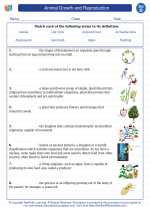 Animal Growth and Reproduction
Animal Growth and Reproduction  Vocabulary/Answer key
Vocabulary/Answer key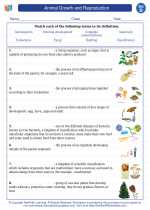 Animal Growth and Reproduction
Animal Growth and Reproduction  Vocabulary/Answer key
Vocabulary/Answer key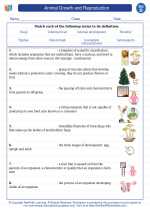 Animal Growth and Reproduction
Animal Growth and Reproduction  Vocabulary/Answer key
Vocabulary/Answer key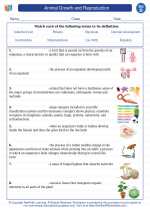 Animal Growth and Reproduction
Animal Growth and Reproduction  Vocabulary/Answer key
Vocabulary/Answer key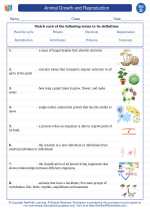 Animal Growth and Reproduction
Animal Growth and Reproduction 

 Activity Lesson
Activity Lesson
 Worksheet/Answer key
Worksheet/Answer key
 Worksheet/Answer key
Worksheet/Answer key
 Worksheet/Answer key
Worksheet/Answer key
 Worksheet/Answer key
Worksheet/Answer key
 Vocabulary/Answer key
Vocabulary/Answer key
 Vocabulary/Answer key
Vocabulary/Answer key
 Vocabulary/Answer key
Vocabulary/Answer key
 Vocabulary/Answer key
Vocabulary/Answer key
 Vocabulary/Answer key
Vocabulary/Answer key

The resources above cover the following skills:
Life Science
Heredity and Reproduction - A. Offspring of plants and animals are similar to, but not exactly like, their parents or each other. B. Life cycles vary among organisms, but reproduction is a major stage in the life cycle of all organisms.
Compare and contrast the major stages in the life cycles of Florida plants and animals, such as those that undergo incomplete and complete metamorphosis, and flowering and nonflowering seed-bearing plants.